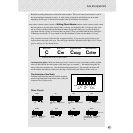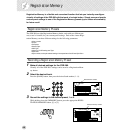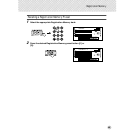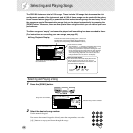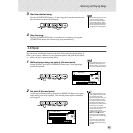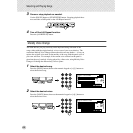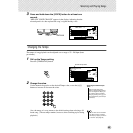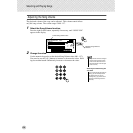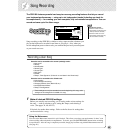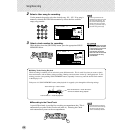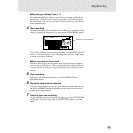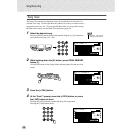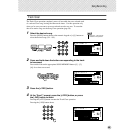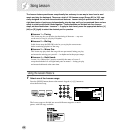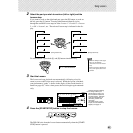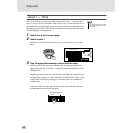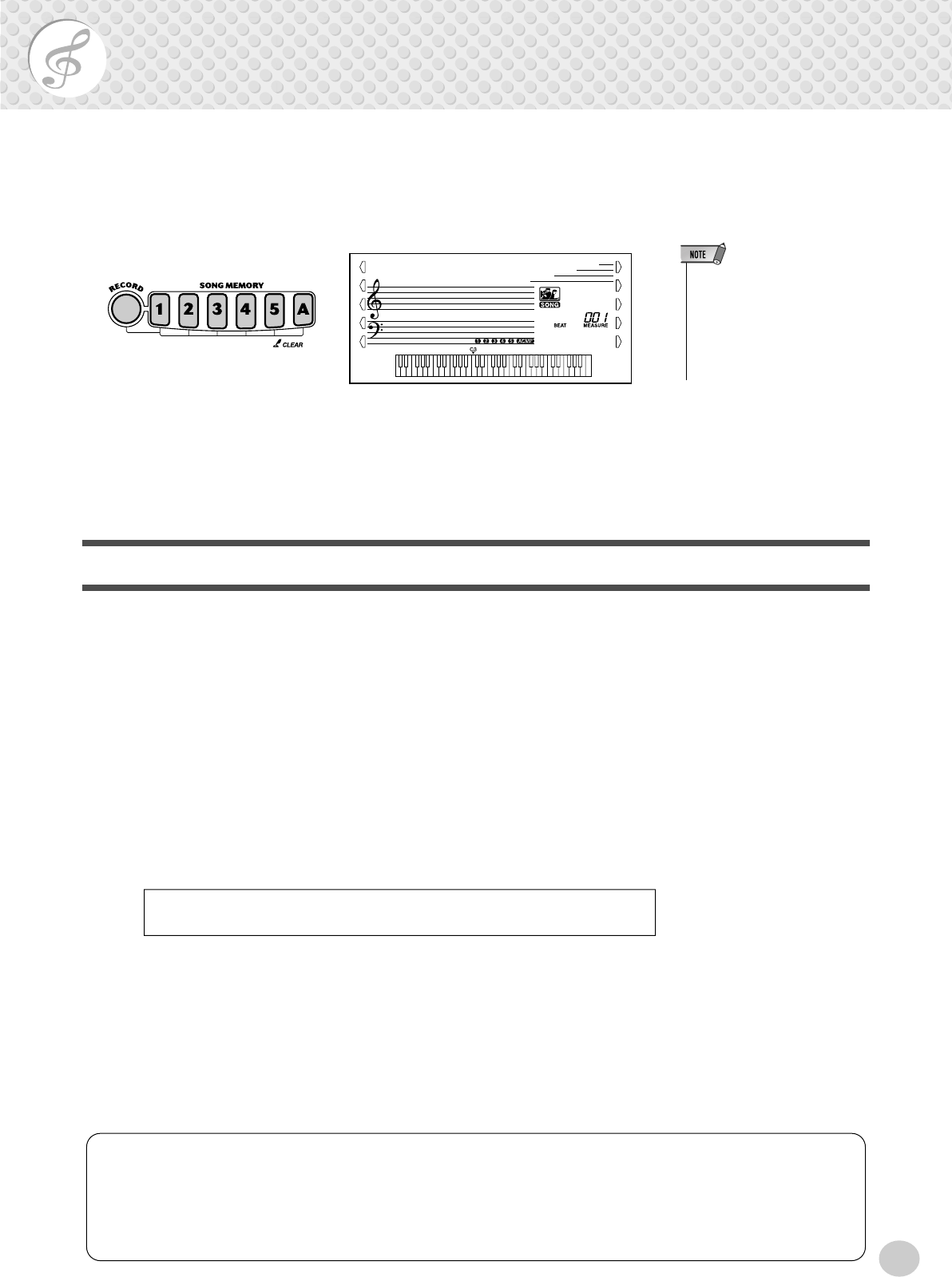
55
Song Recording
The PSR-280 features powerful and easy-to-use song recording features that let you record
your keyboard performances — using up to six independent tracks (including one track for
accompaniment) — for creating your own complete, fully orchestrated compositions. You can
record and save up to five User songs.
Song recording on the PSR-280 is similar to using a tape recorder; whatever you
play on the keyboard is recorded in real time as you play it. Also, when you
record subsequent parts to other tracks, you can hear the previously recorded parts
as you record new ones.
Recording a User Song
Data that can be recorded to the normal (melody) tracks:
• Note on/off
• Velocity
• Voice Number
• Reverb Type*
• Chorus Type*
• DSP Type*
• Sustain
• Tempo*, Time Signature* (if there is no such data in the Chord track)
Data that can be recorded to the Chord track:
• Style number*
• Chord changes and timing
• Changing sections (Intro, Main A/B, etc.)
• Accompaniment Volume*
• Tempo, Time Signature*
1 Make all desired PSR-280 settings.
Before you actually start recording, you’ll need to make various settings for
the song — such as selecting a style, setting the Tempo, and selecting a
voice. (See pages 34, 40, and 23.)
If desired, also make other settings. Refer to the list above for settings that
can be recorded to a song.
User 1
rEC
Song Memory Capacity
• Maximum number of notes :
approximately 10,000 (when only
“melody” tracks are recorded)
• Maximum number of chords :
approximately 5,500 (when only
the chord track is recorded)
* These settings can only be recorded once at the beginning of a song; other
settings can be changed in the middle of a song.
Using the Metronome
You can use the Metronome instead of a style if desired. This allows you to keep your performance “in time,” even
when recording without rhythmic accompaniment. To do this, press the [METRONOME] button before recording
in step #4 below. After the song is completely recorded, simply play back the song with the Metronome turned off.
(See page 20.)



